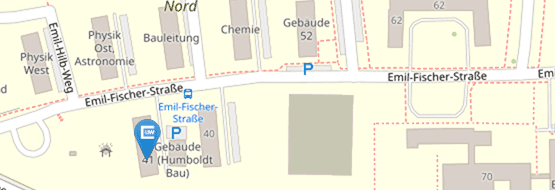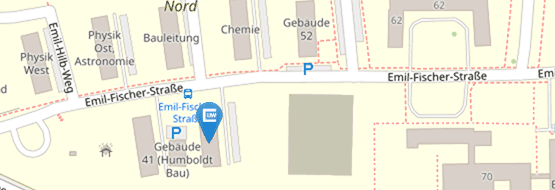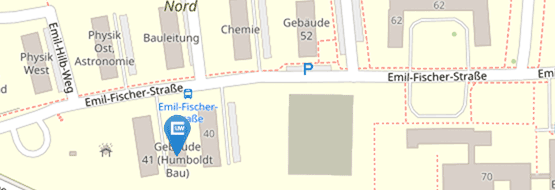Oberseminar Deformationsquantisierung und Geometrie: Wilmer Smilde (University of Illinois at Urbana-Champaign)
Lie theory and classification of geometric structures: Bryant algebroids
| Datum: | 02.02.2024, 14:00 - 15:15 Uhr |
| Kategorie: | Veranstaltung |
| Ort: | Hubland Nord, Geb. 30, SE30 |
| Vortragende: | Wilmer Smilde (University of Illinois at Urbana-Champaign) |
Abstract: In this talk, we will explore some deep connections between Lie theory and moduli problems of geometric structures. By a geometric structure we mean a coframe on a manifold. It often arises as the frame bundle of a $G$-structure with a connection. Typically, a moduli problem of a coframe is given by an equation in the invariants of the coframe. Necessary conditions for the existence of solutions to the moduli problem are obtained from "$d^2 = 0$": the exterior derivative must square to zero. It was already proved by Elie Cartan (under certain regularity conditions, such as analyticity and involutivity) that the condition "$d^2 =0$" is also sufficient for local existence of solutions. The connection between "finite type" moduli problems and Lie algebroids was observed by Robert Bryant and was worked out in detail by Rui Fernandes and Ivan Struchiner. By integrating the Lie algebroid associated with the moduli problem, they obtained a complete theory of the local and global (or complete) solutions of the problem. Moreover, integration techniques can be used to construct explicit solutions to the problems, and identify precise obstructions for local solutions to extend to complete solutions. Although many moduli problems are of finite type, it is not the typical situation. We introduce a generalization of a Lie algebroid to describe the "infinite type" moduli problems for coframes, that we call a Bryant algebroid. In many ways, it is an agglomeration of formal PDE theory and Lie algebroid theory. The aim of the project is to enable the powerful techniques in Lie theory to be used to study these types of moduli problems of coframes. I hope to explain how prolongation theory of Bryant algebroids leads to a finite rank "pro-finite" Lie algebroid, and discuss implications. Also, I will present some difficulties in identifying a global counterpart to Bryant algebroids. This is joint work with Rui Loja Fernandes and Ori Yudilevich.






